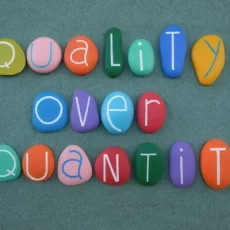- Why self-talk is important?
- Why do all of us concurrently indulge in self-talk?
- Do you think it is some kind of mental condition?
- Can we control our thoughts while self-talking?
- Do you indulge in self-talking consciously / subconsciously?
- Are you surrounded with such questions when the topic of self-talk is raised?
Yes, all of us are!
“There is no inspiration without being armed with the ability of self-talk.” ― Mwanandeke Kindembo
As an artist, performer, host or communicator whenever, I have to undertake any such activity, I indulge in a lot of self-talk. I become the speaker, I become the listener, I become the analyser and believe me come up with lots of exclusive ideas. This immense value adds to my performance. Yes, the mind wavers, it swings positively, negatively, and neutrally!
I think this program is very difficult, not my cup of tea, it is certainly going to be a washout performance. This is negative self-talk.
We need to shed this and think: Though I have never attempted anything like this before, I will give my best shot and make it a Steller performance. This is positive self-talk.
Finally, my mind may swing in another direction, whatever it is, I will give my best shot. Everything will be fine. I will face the situation accordingly when it arrives.
The mind is the most unique organ of the body. It controls all our actions and thoughts. Its storage for memories cannot be compared to any cloud storage prepared technologically. Not only this, it can talk to itself for minutes, hours, days, months, and years…the capacity is endless, boundless, and many times directionless.

So how do we define self-talk?
Self-Talk is the inner voice that combines conscious thoughts with inbuilt beliefs and biases to create an internal monologue throughout the day. Self-talk is important because it has a big impact on how you feel and what you do. It can be supportive and beneficial, motivating, or it can be negative, undermining your confidence.
“Effective self-talk strategies can give us a greater sense of control over our doubts, worries, and fears.”
― Noel Brick
Coming back to positive self-talk, it makes a person feel good about himself and his circumstances whereas negative talk leads to anxiety or depression. Now, the question is that if you are already depressed, how can you indulge in positive self-talk? It is a kind of double blow which you need to address. You need to make that extra effort to condition your brain in such a manner that it starts thinking positively. It has been observed that sports persons before any run or tournament indulge in self-talking and come up with some brilliant performances. So much so that they enjoyed the immense stress they went through before the performance.
A study reveals that for school students who indulge in self-talking about their studies, exams, or extracurricular activities, it worked out to be a big morale booster for them.
Let me share with you that positive self-talk can convert even the most difficult rather messed up performances into experiences and learnings.
What are the benefits of positive self-talk?

Research shows that positive self-talk can:
- Improve self-esteem, enables better stress management and wellbeing
- Works well if you show any symptoms of depression, anxiety, and personality disorders
- Improves your body image and can help treat people with eating disorders
- Reduce your risk of self-harm and suicide
- Make you feel more in control of your life
- Help with chronic pain
- Motivate you to overcome obstacles
- Help in calming your emotions
Besides, you develop a healthier immune system, better cardiovascular health, improved mental health, increased vitality, and greater life satisfaction.
An American author Ralph Charell has beautifully encapsulated, “The inner speech, your thoughts, can cause you to be rich or poor, loved or unloved, happy or unhappy, attractive or unattractive, powerful or weak. Self-talk is the script that we use to give shape to our lives…
…If we constantly give negative messages then our mind will accept those and will continuously tell us to be negative in our thought process and be negative. On the contrary, if we engage in positive conversations, we begin to see the world in a positive light which will ultimately make us feel positive and good about ourselves.”
Whereas negative self-talk can become repetitive and overwhelming and often feels like it’s true. Hence, you need to be aware of what you’re saying to yourself. Just the act of stopping and recognizing negative thoughts for what they are is the first step to working through the problem. Ask yourself, would you talk like this to someone else?
Certainly, it can take some time to recognize your negative thoughts, because these have been part of you for a long time and it can take elongated periods to change old habits. Over time though you can replace the unhealthy negative thoughts with more positive ones. Practice makes it easier.

What makes self-talk so powerful?
Self-talk is something you do naturally throughout your waking hours. People are becoming more aware that a positive self-talk is a powerful tool for increasing their self-confidence and curbing negative emotions. People who can master positive self-talk are thought to be more confident, motivated, and productive.
This way add to your happiness quotient, HappyHo.





